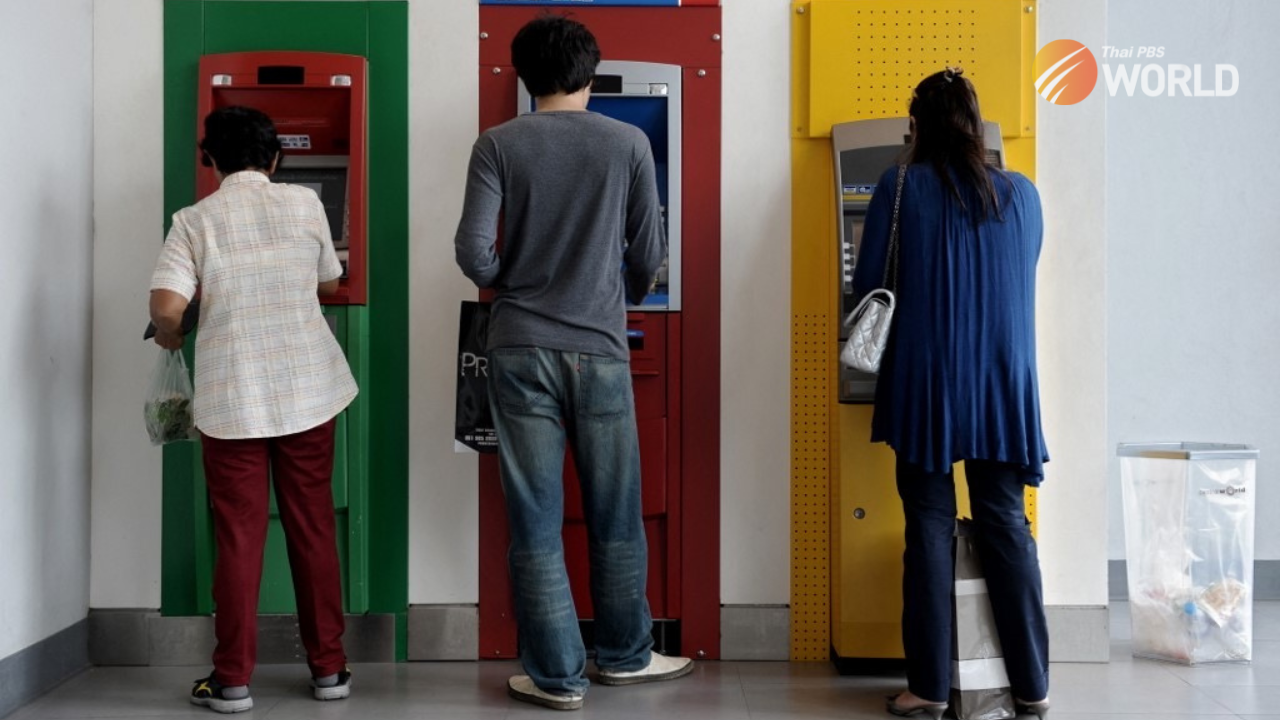Is Thailand really immune to the banking turmoil in the US and Europe?

The global financial markets are highly interconnected. When Thailand’s banking system suffered a collapse and the baht’s value plummeted in 1997, the contagion effect spread to other Asian countries. Similarly, one saw the global financial crisis triggered by the collapse of Lehman Brothers Bank in the United States in 2008.
Recently, US regulators had to shut down two regional banks — Signature Bank (SB) and Silicon Valley Bank (SVB). SB’s core business was related to cryptocurrency while SVB largely serviced startup companies and venture capitalists.
Crypto crisis
Since last year, the crypto market has been in serious trouble. There are many factors that can be attributed to the industry’s predicament.
Firstly, the valuation of bitcoin and other cryptocurrencies plunged sharply after the US Federal Reserve aggressively hiked its policy rates to fight rampant inflation.
Secondly, the sharp decline in the value of digital assets held by many crypto firms led to insolvency and bankruptcy of many firms.
A sudden loss of investor confidence in digital assets led to many of them pulling their money out from cryptocurrency firms. This partly led to the collapse of Terra, the dominant stablecoin.
Executives of major crypto firms have been accused of fraud. They include Sam Bankman-Fried, the former chief executive officer of FTX, one of the high-profile exchange platforms for crypto-trading, and Do Kwon, the founder of Terraform Labs and creator of the collapsed stablecoin, Terra.
The collapse of SB, a crypto bank, this year points to persisting trouble in the digital asset industry. At the same time, the collapse of SVB influenced market sentiment, leading to a bank run on small and medium-sized banks in the US.
Trat needs to be taken seriously to realise its full potential
States step in
The US authorities have had to step in and guarantee depositors in the failed banks that they will get all their money back. The governmental intervention became necessary because most of the deposits are not insured, as deposit insurance is limited to US$250,000 per account.
Investors in Europe are also worried about the situation in the banking sector. The large financial losses suffered by Credit Suisse, Switzerland’s second largest bank, have led to money outflows from the bank.
The authorities have had to step in to mitigate the damage. In a government-brokered deal, Swiss investment bank UBS Group AG agreed to buy Credit Suisse for US$3.2 billion in an all-stock deal. The Swiss National Bank supported the deal by providing more than US$104 billion in liquidity to UBS following its takeover of Credit Suisse’s operations, while the Swiss government provided a guarantee to UBS to cover losses of up to $9.6 billion over the short term.
Europe’s problems did not end there, as investors have also sold shares of Deutsche Bank, though the German government and analysts believe in the bank’s solvency and are attributing the market behaviour to panic.
Thai banking is strong
The Bank of Thailand (BOT) and other Asian central banks have insisted that their banking systems are sound and resilient. They have repeatedly assured the markets that the impact of the banking troubles in the US and Europe would be limited to those countries.
“The BOT has closely monitored the situation and our assessment concludes that the impact would be limited, due to banks and investment funds having very limited exposure [to those troubled banks],” Suwannee Jatsadasak, BOT assistant governor, assured.
Cabinet agrees to allocate ฿1.5Bn to refinance about 50,000 farmers’ debts
Adequate provisions
In general, Thai banks have higher financial ratios used to measure their solvency. For example, at the end of 2022, Thailand’s banking system had a capital adequacy ratio of 19.4 per cent well above the minimum requirement of 8.5 per cent. The sector had a liquidity coverage ratio of 197.3 per cent and non-performing loan coverage ratio of 171.9 per cent, according to the Thai central bank. Even the non-performing ratio was only 2.73 per cent.
Moreover, the Thai banking sector had a deposit base that covered a large number of retail depositors and small and medium-sized enterprises, said the central bank.
In comparison, the SB and SVB in the US had a narrow deposit base, primarily concentrating on crypto firms or startups and venture capitalists, which made them vulnerable to a bank run.
“The solvency of the Thai banking sector is much better than it was during the 2008 global financial crisis,” says the BOT.
Impact on Thai economy
However, sceptics are worried that the banking turmoil in the developed countries and their ramifications would have an impact on Thailand’s economy as long as the US Federal Reserve and the European Central Bank continue to raise their key interest rates in order to bring inflation down.
“A higher rate of interest would slow the global economy down and it would definitely have an impact on Thailand’s exports,” said Supavud Saicheua, an economist and an advisor to Kiatnakin Phatra Financial Group.
The Joint Standing Committee on Commerce, Industry and Banking, an influential club of the private sector, has forecast exports to decline by 1 per cent this year, down sharply from the 5.5 per cent growth last year, due to the slowdown in the global economy. The committee has predicted that Thailand’s economy would grow 3 to 3.5 per cent this year.
‘A challenging year’
Meanwhile, International Monetary Fund chief Kristalina Georgieva warned on March 26 that risks to financial stability had increased and called for continued vigilance, although actions taken by advanced economies have helped calm market stress.
The IMF managing director reiterated her view expressed earlier that 2023 would be another challenging year, with global growth slowing to below 3% due to the after-effects of the pandemic, the ongoing war in Ukraine and monetary tightening.
Even with a better outlook for 2024, global growth will remain well below its historic average of 3.8% and the overall outlook remains weak, she said.
She assured that the IMF was paying close attention to the most vulnerable countries, particularly low-income countries with high levels of debt.
Thailand’s upper-middle-income economy faces its own challenges in the form of rising public debt and high household debt, but the country luckily has low foreign debt.
By Thai PBS World’s Business Desk






